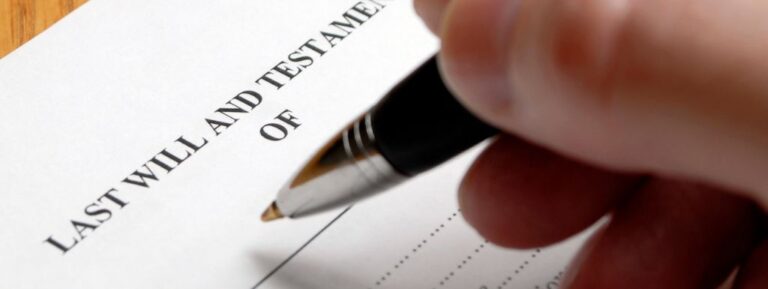When clients cast their mind to the future and look to preparing their estate plan there is often confusion about what property actually forms part of their estate. This article addresses some of the more common forms of property that do not form part of an individual’s estate for distribution in accordance with the terms of their will.
Joint ownership of property
Any property held jointly with another person (such as a spouse) does not form part of the estate when one joint-holder dies. Instead, the property automatically devolves upon the surviving joint-holder. This is most commonly seen in respect of real property, such as the family home, where the title shows ownership by spouses as joint tenants. Particularly where there are blended families – that is, second or third relationships with children from previous relationships – it may be more appropriate for a parent to hold their interest in the family home as tenant in common with the spouse. The benefit of such an ownership structure is that the interest held by the spouses in the home is divisible and may be bequeathed under the terms of their individual wills. Spouse A can then leave his/her percentage interest in the home to his/her children, while Spouse B can do likewise with his/her percentage interest. Where real property is held as joint tenants it may therefore be advisable to sever the joint tenancy for the purposes of estate planning.
It should be noted that the principles of joint ownership apply equally in respect of any chattels, such as furniture, vehicles and artwork, which may have been purchased by either or both of the spouses and can be said to be owned by both. In other words, such jointly owned personal property will also devolve automatically upon the surviving spouse.
Company property
Particularly where an individual is a sole shareholder and director of a company there is often confusion by clients about what property is owned by the individual and what is owned by the company. Where a company owns assets, stock or intellectual property of a business, it is not possible for the individual to bequeath such items in their will. This is because a company has its own legal entity distinct from the individual shareholder/director. Subject to the terms of the company’s constitution or any shareholders agreement or buy-sell deed, if the individual is the owner of the shares in the company in their own name, it is these shares that may be distributed under the terms of the individual’s will.
Trust property
Similar to a company, assets held by a trust are not considered assets of any individual, regardless of whether that individual is named in the trust deed as trustee, appointor (principal) or beneficiary. This is because the trustee of the trust holds the assets on trust pursuant to the terms of the trust deed and for the benefit of the trust’s beneficiaries. When preparing an estate plan it is therefore vital to review the terms of the trust deed to determine what happens in the event of death of a trustee, appointor and/or beneficiary and to incorporate into the terms of a will a provision that passes control of the trust should the trust deed allow this. It is by the passing of control of a trust that the beneficial ownership of trust assets can be left to the desired beneficiaries, and for this reason a variation to a trust deed may be required as part of an effective estate plan.
Superannuation
Whether superannuation is held in a self-managed superannuation fund or a retail fund, a trust relationship exists between the trustee and the fund’s members, which is governed by the fund’s trust deed. Therefore, similar to assets held by other forms of trust (discussed above), superannuation death benefits of an individual – including the proceeds of life insurance policies held in the fund – pass according to the terms of the fund’s deed. Strict laws apply to the distribution of a deceased’s superannuation death benefits, such that the only possible beneficiaries are spouses, children, those who were in interdependent relationships with the individual and, importantly, the deceased’s legal personal representative (or executor). It is in this latter manner that it may be possible to direct superannuation to pass in accordance with the terms of one’s will; however, this will depend on the wording of the superannuation trust deed and the ability to execute a death benefit nomination which directs the proceeds accordingly. This is a complicated area of law with significant implications relating to tax, potential conflicts of interest and estate challenges, and therefore professional legal and financial advice should always be sought when dealing with superannuation as part of an estate plan.
At Rostron Carlyle Rojas, our wills and estates lawyers are familiar with relevant issues involving property ownership in estate planning and are happy to discuss any concerns you may have in a no-obligation free first consultation.
The blog published by Rostron Carlyle Rojas is intended as general information only and is not legal advice on any subject matter. By viewing the blog posts, the reader understands there is no solicitor-client relationship between the reader and the blog publisher. The blog should not be used as a substitute for legal advice from a legal practitioner, and readers are urged to consult RCR on any legal queries concerning a specific situation.



